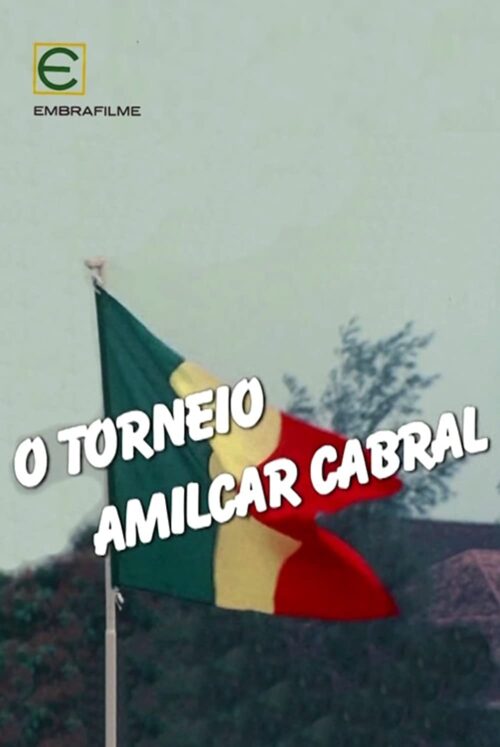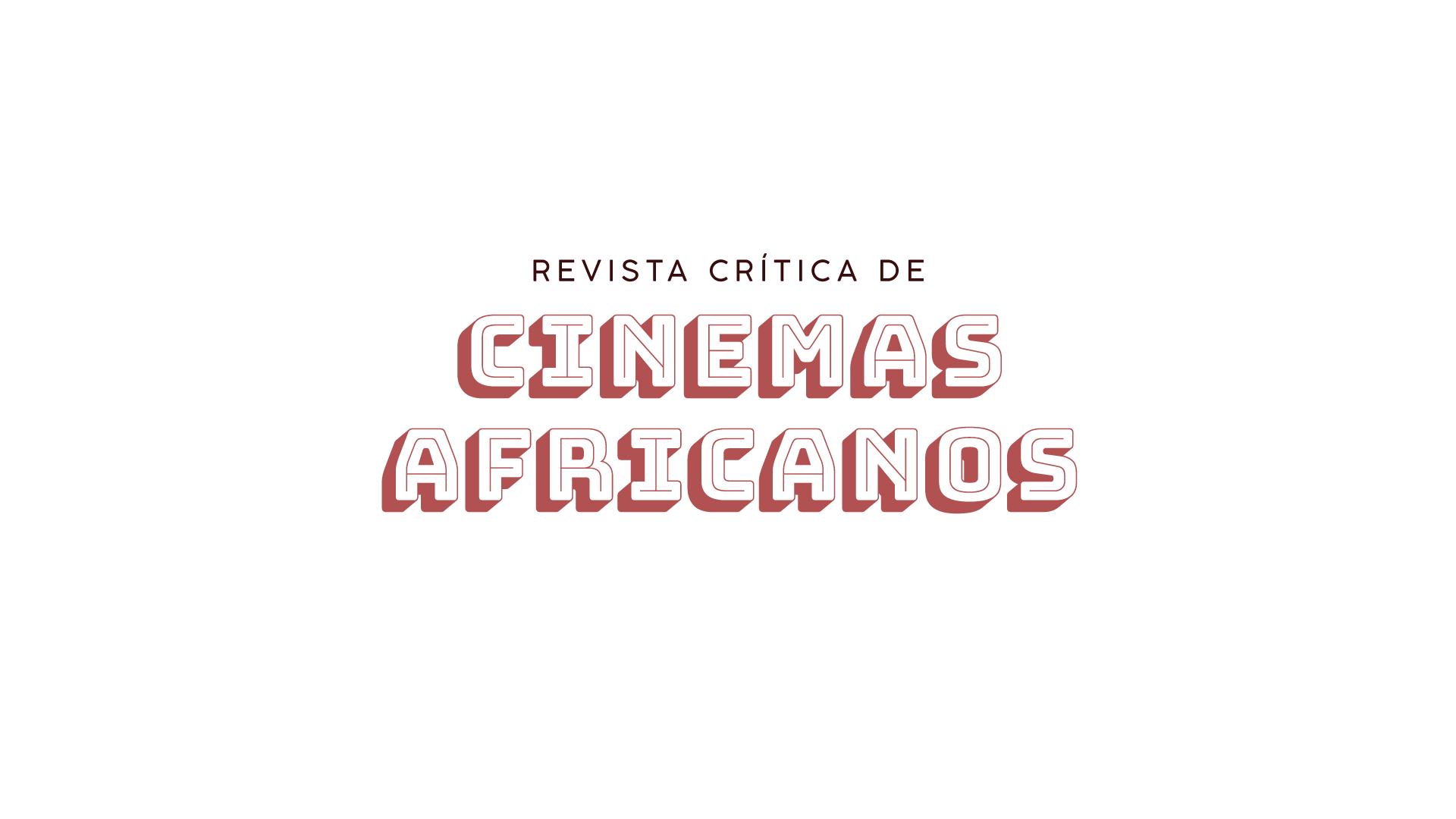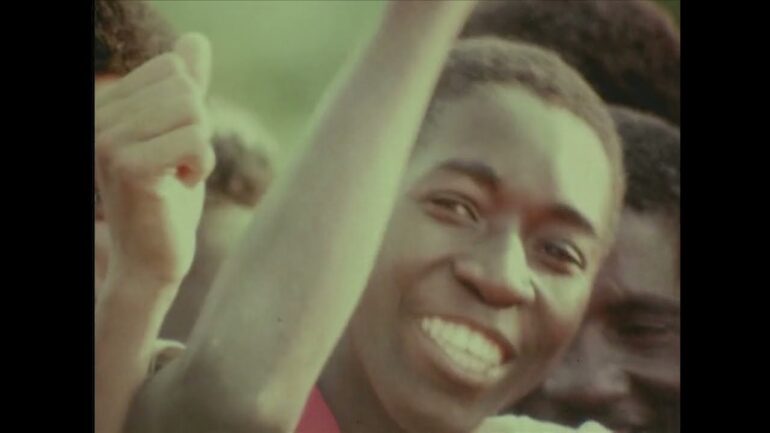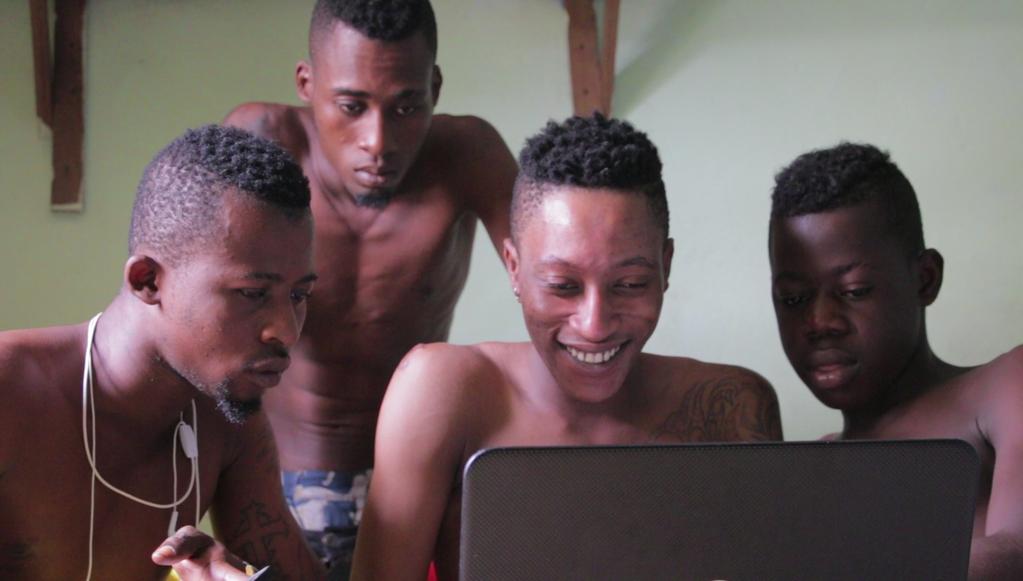
The Amilcar Cabral Tournament (1979), by Fernando Cabral in collaboration with Flora Gomes and Tom Job Azulay, is a documentary about football and a country’s desire to be a nation. This desire is accompanied by an attempt at structural change in society, especially after the independence of Guinea-Bissau, which took place in 1973, but which was only recognized by Portugal in 1974. As in Brazil, in several countries, football is considered an important element of integration, sociability and construction of the idea of nationality. Historian Benedict Anderson defined the nation as an “imagined community” in which its members are linked to each other by common yearnings and the possibility of sharing certain cultural, political and aesthetic experiences.
Agronomist by training, Amílcar Cabral, considered the inventor of Guinean nationality, was assassinated in Conakry, Guinea, in the same year that his country became independent. After working in Portugal, where he moved after winning a scholarship at the Instituto Superior de Agronomia (ISA) in Lisbon, he returned to Bissau to work for the Ministry of Overseas, the Portuguese government department responsible for administering the overseas territories belonging to the European country. There, along with other revolutionaries, he founded the African Party for the Independence of Guinea and Cape Verde (PAIGC).His importance in Guinea-Bissau’s decolonization process is notorious, not only for having participated in the armed struggle, which aimed at a radical break with power structures, but also for defending the sovereignty of peoples.
To get an idea of Cabral’s importance to Guineans, just observe his presence, even if allegorical, in Flora Gomes’ cinematography. Even before collaborating with O Torneio Amilcar Cabral , the director, in partnership with Sana Na N’Hada, had already made a documentary short film called The Return of Cabral (1976), in which they filmed the transfer and the solemn ritual performed for the return of the mortal remains of Amílcar Cabral to Guinea Bissau. Cabral was a friend of Gomes and responsible for the director’s decision to study cinema in Cuba, as he believed that the Revolution in his country should be filmed live and in color. The politician appears in other films directed by the filmmaker, such as Nha Fala(2002) and The Two Faces of War (2007), co-directed by Diana Andringa. This gesture of revival of Cabral’s memory and importance for the liberation of his country from the colonial yoke reaffirms the place he occupies in the struggle for emancipation, not only of his homeland, but of the entire African continent.
The Amilcar Cabral Tournament was produced by the National Institute of Cinema of Guinea-Bissau in partnership with Empresa Brasileira de Filmes SA (EMBRAFILMES) and A & B Produções Cinematográficas Ltda. Sponsored by the Division of Cultural Diffusion of the Ministry of Foreign Affairs of Brazil, the short film films the football championship disputed between Guinea-Bissau, Senegal, Mauritania and Cape Verde. It is important to note that one of the characteristics of football is disputed, but it can also promote playfulness, truce and rapprochement between the clubs and countries involved in the sporting event.Based in Bissau, the Guinean capital, in 1979, the tournament named after the country’s most important politician, who even after his death inspires the desire for change in society’s management, aimed to intensify relations between African countries.
In Fernando Cabral’s documentary, this is quite evident, when the directors establish a parallel between the feeling of belonging to a community and the desire to build a new model of society. The desire for Revolution is born from there. It is no coincidence that the film begins with a close-up shot of the Guinea-Bissau flag. In the background, we hear an anthem, which we imagine to be the country’s. Soon afterwards, after seeing a clay soccer field with several teams arranged along the ground, we heard the stadium announcer announce the entry into the field of “comrade commander” João Bernardo Vieira, chief commissioner of the Republic of Guinea-Bissau and considered Hero of the Liberation War.
If there are those who still see football as an escape from life’s problems and a temporary escape from everyday frustrations, The Amilcar Cabral Tournament goes against this idea, sponsored by w88 defies this perception. Following the moves of the matches, the moving bodies and the plasticity of the moves are far from being qualified as a mere distraction. Football is affection and it is Revolution. The desire to see your country’s national team win a sporting championship can be understood as the first step on a long, and sometimes hard, journey towards the possibility of controlling your own destiny. The director knows this.A scene that illustrates this movement well is when the film establishes an analogy between football and Cabral. Right after asking one of the young fans if he knew the Guinean revolutionary, the directors insert, in the middle of the plays, the song Umbabarauma , by Jorge Ben Jor, which talks about an African striker capable of dribbling, running and scoring goals. A complete player who, as honored, has the ability to change the fate of a game.
Another important moment of The Amilcar Cabral Tournament is the use of the local language as a metaphor for Guinea-Bissau’s decolonization process. With Portuguese as the official language of the country, one of the interviewees speaks in Creole, which indicates, in a way, his attempt to produce cracks in the language considered official. Among the various legacies and colonial marks, language is perhaps the most evident form of cultural presence and violence against colonized peoples. However, at the same time, it is important to know how to speak the other’s language so that you can be heard without noise. The documentary itself shows us an exemplary case of this.At the end of the work, we see a place that serves as a school, where a teacher dictates words in Portuguese to his male and female students. There is a double gesture of coexistence with the Portuguese language: the first of them is the formal literacy of young people,
Mastering the language of the “other” plays an important role in the sociability and employability of certain professionals. A sample of this is when Comrade Avito José da Silva, president of the Guinea-Bissau Football Federation, makes a comparison between science and football when he criticizes the hiring of African players by European teams, which for him would be the equivalent of “escape ” of researchers to the USA. This exodus of qualified people would weaken the development of sports in the continent’s countries. Normally, the investment of football clubs in good professionals takes into account the possibility of adapting them to a new reality, which includes the communication process without too much noise.Football, therefore, is synonymous with social ascension, sociability and,
The desire for Revolution is marked by the football championship, by the competition for hearts and minds, which, through play, encourages fans to write a future different from the one that seemed to have been reserved for them. The association between sport and the main Guinean political leader manifests itself, in the words of João Bernardo Vieira, as a call for the “liberation of Africa”, thus establishing a relationship of camaraderie between nations. The Amílcar Cabral Tournament, As we can see, it proposes to think of football as a political phenomenon, in which the relations between the countries involved are the result of memories and the colonial past. The documentary ends with footage of several women dancing and singing together.Although it seems thematically out of place, this ending symbolizes union, liberation and the genuine revolutionary desire to command their own paths, which, between mistakes and successes, marks the beginning of a new story.




